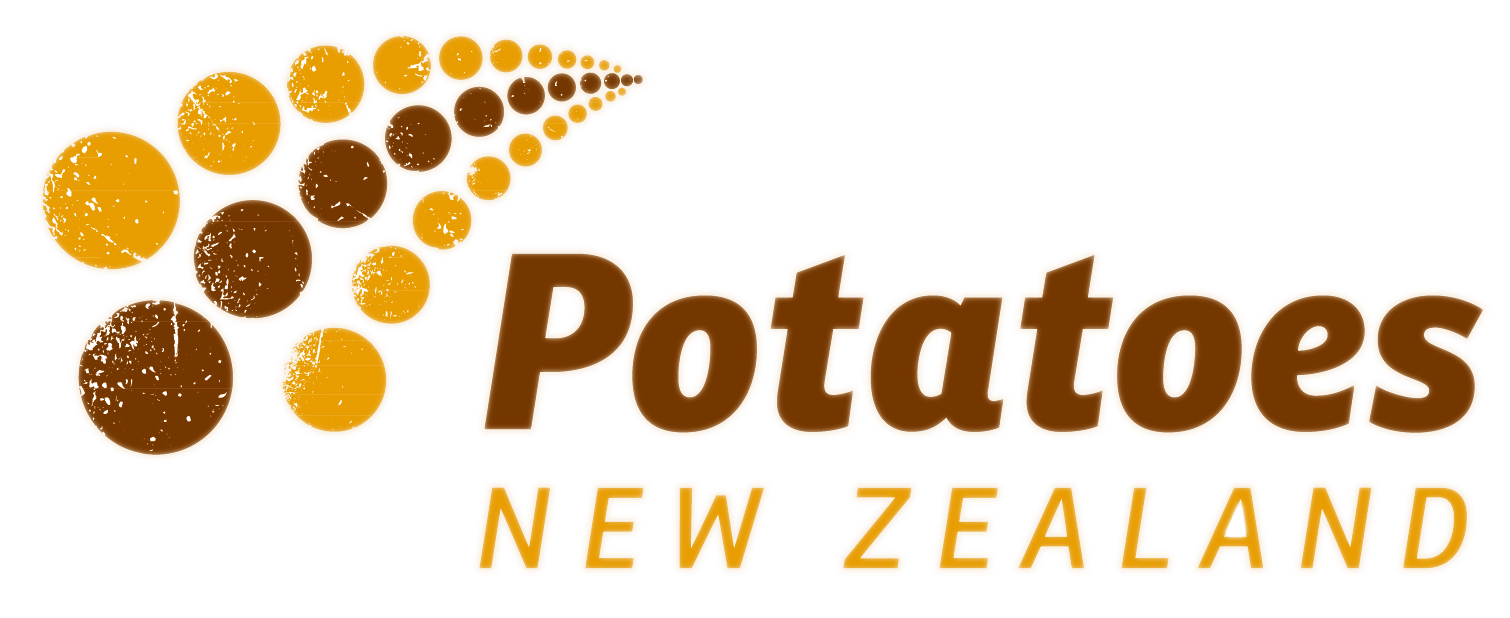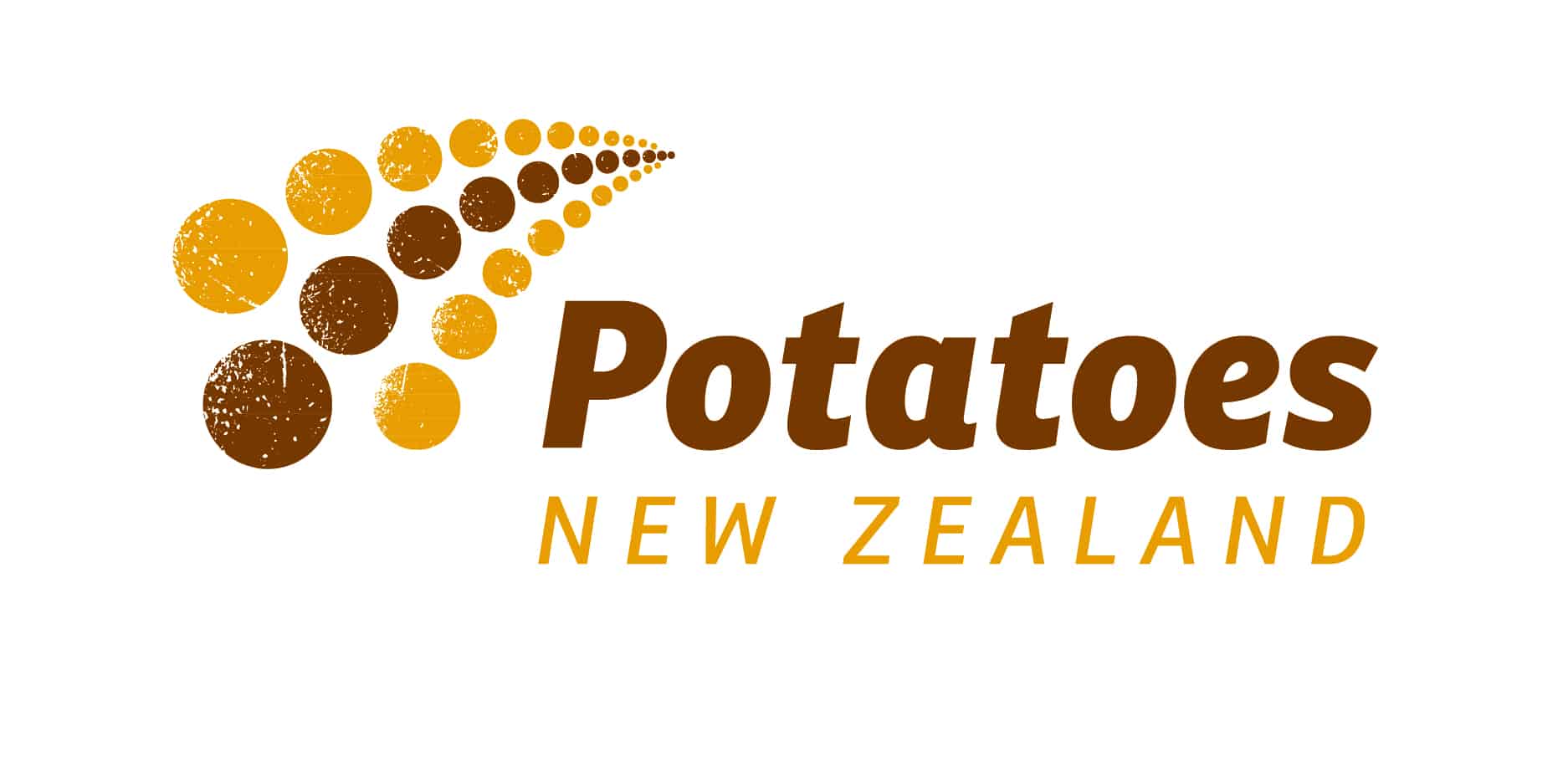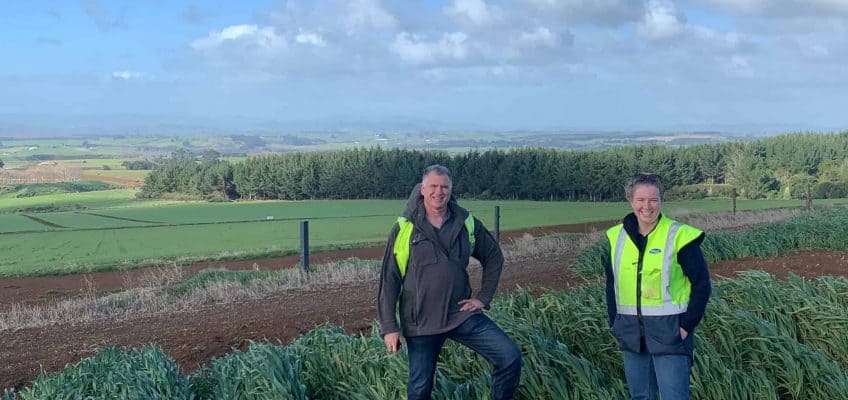From elite school to elite soils: a winning young horticulturist.
In May this year, 25-year-old Sarah Dobson became the first regional finalist for the 2022 Young Grower of the Year competition.
Sarah is an environment and sustainability technician at A.S. Wilcox and will next represent the region at the national competition in September.
The Pukekohe competition saw contestants completing modules in marketing, compliance, pests and disease identification, safe tractor driving, health and safety, soil and fertilisers, irrigation, and quality control.
The competition was tight and strong, with no obvious stand-out in Sarah’s mind, but for those of us from the NZ Potato Industry in attendance on the awards night, we were fairly sure of her abilities when we witnessed her beautifully crafted speech at the start of the evening. Sarah is a humble, intelligent and talented communicator.
Sarah’s interest in horticulture was not an obvious choice, despite her proximity to the food bowl of Pukekohe, growing up on a lifestyle block where her parents had a vege garden and home kill meat, as well as an aunty with a kiwifruit orchard. Sarah’s school bus rides past commercial cropping areas on her way to ACG Strathallan College didn’t particularly catch her eye and she was focused on her love of science in the classroom. She was also interested in climate change impacts, food security, and overseas aid work, but horticulture was not a subject offered at her school.
She was fortunate enough to meet an external careers advisor who suggested she consider agriculture as a pathway, so armed with a scholarship to Massey, as well as support from Wilcox, she completed a BSc in Agricultural Science with a minor in Horticulture, followed by her Master of Science in Horticultural Science.
Her boots-on-the-ground experience began with a placement at her aunt’s orchard, then subsequently at Wilcox vegetables in their potato paddocks, digging spuds. Wilcox started growing potatoes and onions in the fertile volcanic Pukekohe soils in the early 1930’s. They now operate in 4 regions; Northland, Pukekohe, Matamata, and Ohakune with 230 staff nationwide.
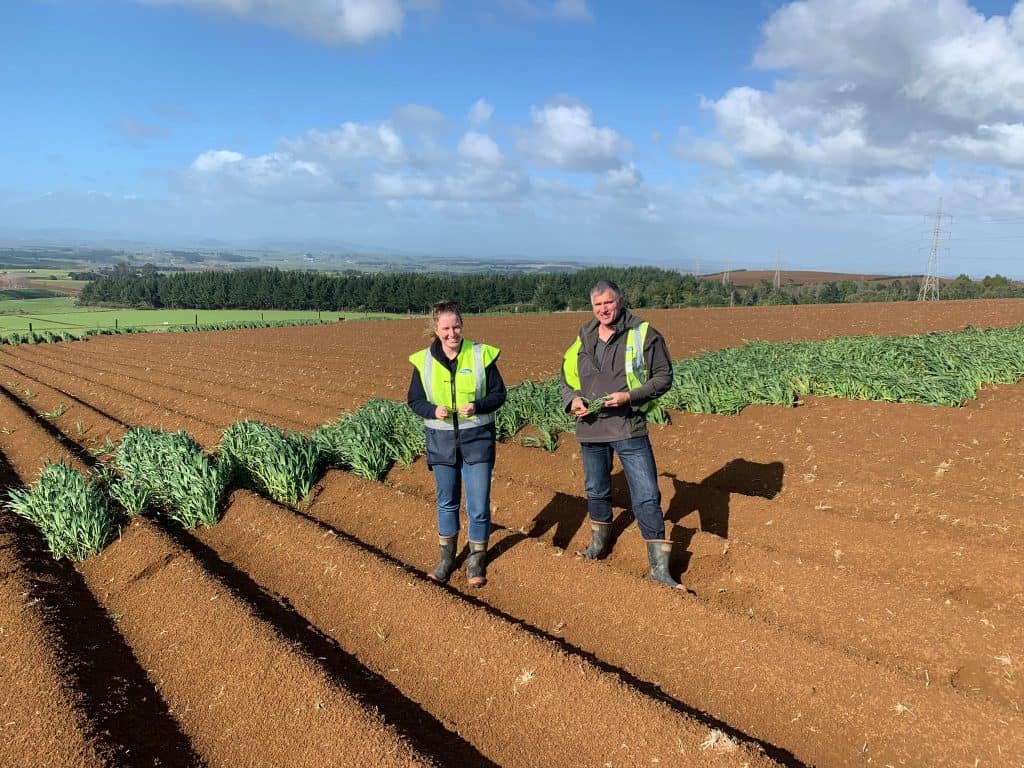
Sarah feels a good connection with the Wilcox team and her manager, Bryan Hart. Two years ago, they offered her a newly established role of Environment and Sustainability Technician, an opportunity she couldn’t turn down as it matched her values so clearly. Wilcox’s company purpose is ‘Growing healthy communities from the ground up’, offering a meaningful culture for the team.
Her work sees her managing farm plans, environmental improvement practices, compliance, trial work, and internal sensory testing. She has been able to design and develop her role because it was new, and she has brought multiple field activities under one hat.
In Sarah’s mind, one of the biggest challenges for growers is keeping abreast of the changing compliance landscape and regulations. It means she needs to keep her programme moving forward, and be open to constant change, using the NZGAP EMS template as a starting point.
Wilcox have also started their internal sustainability development which embraces the pillars of; People, Planet, Productivity, and Community. Their ‘Grow 4 Good’ programme encapsulates all these sustainability directions. An upcoming innovation is the scoping of a solar install project for their packhouse.
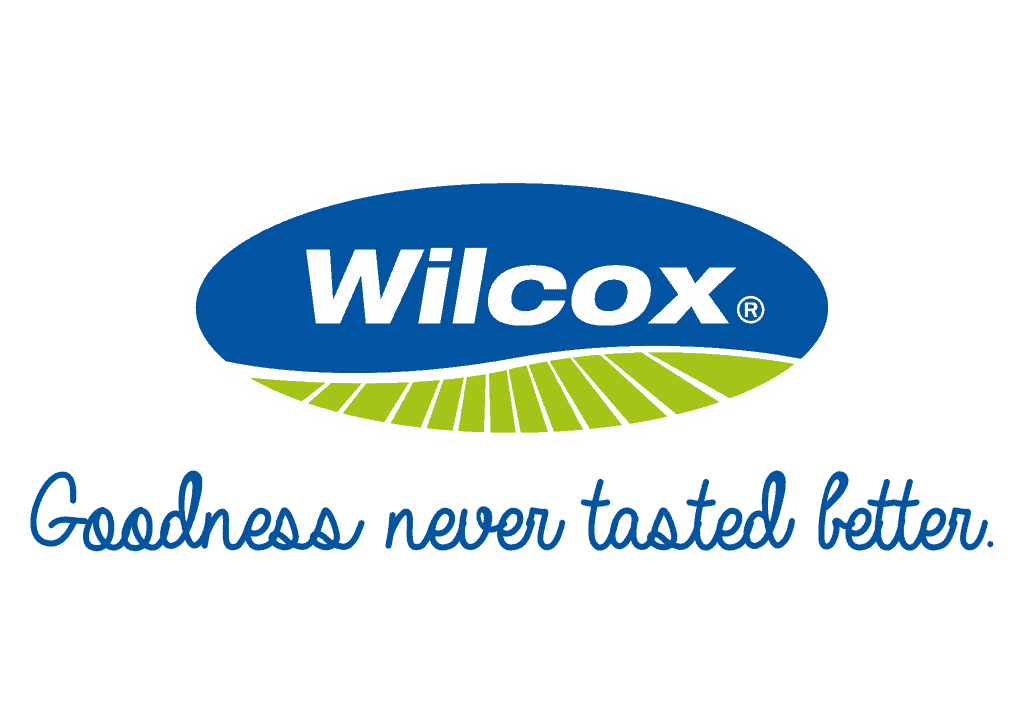
Wilcox are looking at sustainability from a Best Management Practices perspective and not just to meet compliance. They can see that sustainability is an opportunity for business improvement. Clearly their incorporation of social sustainability with the inclusion of both People which contains their personnel/staff elements, as well as Community which holds the space for their wider families, customers, neighbourhoods and other stakeholders, means staff tenure improves because they feel there is meaning in their work.
There are many issues facing vegetable growers in the region, which Potatoes NZ has had conveyed to us across all our growing regions: labour, seasonal staff, land availability, input costs, and compliance costs.
Likewise, the barriers to entering the sector are felt too, with potential next generation talent either unaware of the opportunities, the diversity of roles, the technology to support flexible working at times but also a new generation of workers who expect a good work-life balance and may not be attracted to the seasonal peaks. It begs the question; how do employers ensure those peaks are balanced by some other benefit for their teams?
Sarah wants students to know that if they love science, they can connect it to horticulture and a world of opportunity can open up for careers, but she also worries that there may not be enough specialised horticulture teachers available to support a renewed interest. For secondary students at schools that don’t offer horticulture as a subject, the Gateway programme is often the only way students can get exposure to horticulture before leaving high school and they first need to know about it before requesting an industry placement for the programme.
Bryan Hart can remember he had 300 students in his at 1st year of Horticultural Science in 1980s, whereas Sarah thinks she had less than 20in her 3rd year of horticulture. This emphasises the importance of advocating and creating career pathways to retain young people in the industry.
Potatoes NZ strongly feel that young people must play a key role in the future sustainability of our food security in Aotearoa. Students can access free registration to our Canterbury National Conference this year.
Despite the challenges and pressures facing the sector, Sarah truly enjoys supporting growers and quietly admits she could see herself as a future leader.
Sarah’s winning speech from May 2022 on the topic of New Zealand horticulture in 5 years’ time.
I thought it might be interesting to consider what life could look like for an onion grower in 2027 – let’s call him Brent.
It’s the end of a long and hot onion season – there’s been 3 weeks of sunny skies, all days over 30°C. Yields were down 30% on the older lines as Brent couldn’t get enough water on them – he’d reached his consent capacity. Fortunately, his newer varieties withstood the heat much better.
Brent sits down to check his emails and sees his residue results come in. No residues – what a relief! His European customers now require zero residues, so this result means his onions are cleared for export. Glyphosate’s also been banned – while the farm’s less tidy these days, all paddocks have flowering borders to encourage beneficials.
While Brent’s at his desk, he files his first emissions return for carbon credits. Three years ago, he planted up his gullies. Even though it cost a lot, he needed to get most of it done anyway for his freshwater farm plan. Plus, he’s taken some great photos for his annual sustainability report.
Brent thinks back to 5 years ago – sure, there’s more compliance, stricter regulation, but he knows his onions are safer for consumers, he feels resilient in the face of climate change, and his growing operation is environmentally sustainable – he is ready for the next 5 years.
INSERT IMAGE 004 (PNZ Conf logo)
